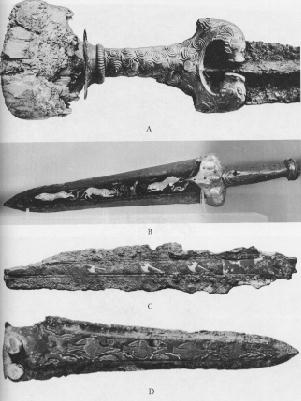
Everyday Objects and Feminine Beauty of Ursa's World
Knives and Daggers taken from Shaft Graves

A. Gold
and ivory sword hilt with lions' heads. B. Inlaid dagger blade with
leopards.
C. Inlaid sword blade. D. Dagger blade with flying birds.
Jewelry from Troy
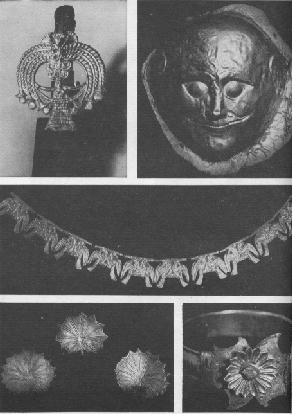
Top to bottom, left to right. Hairpin, Mask, Necklace, Leaf Ornaments, Bracelet, all of solid gold.
Pottery

A.
Mycenaean vases found in Egypt, 1500 to 1300 BC. B. Egyptian copy of Mycenaean
jar.
C. Stirrup jar.
A Warrior Goddess?
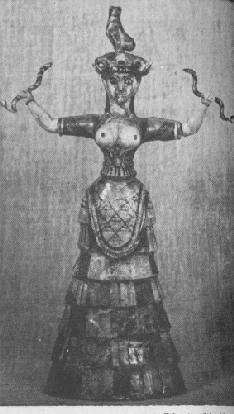
Some say she is just a Minoan woman, but I believe that this is an early example of the goddess Pallas Athene dressed in Minoan costume, where she may have originated. Notice the snakes in her hands to ward off her enemies and the owl perched atop her head. In this 1600 BC statue she is barebreasted, but that is the Minoan style dress for women; the flounced and layered skirt and open bodice. A Minoan woman was proud of her breasts and reddened her nipples and aureoles as well as her cheeks and lips. Do I hear screams from the feminists? I'm sorry but we just can't revise this history for you.
Read more about Pallas Athene.
A Minoan Lady
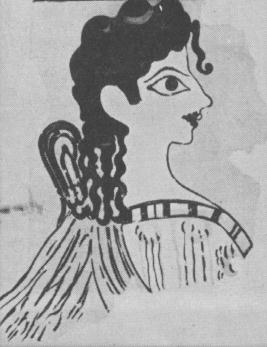
The curly black hair, reddened lips and big eyes are typical of the period. Women from his area of the world are still known for their beautiful big eyes. Use your imagination, she would have been very attractive.
Egyptian Noble Women
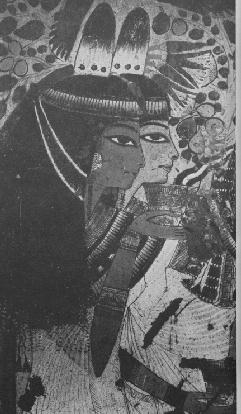
These hauntingly beautiful women are dressed in the semi-transparent gowns so popular in ancient Egypt. 4,000 years ago an Egyptian man wrote a poem to a woman about how lovely she was when she emerged from a pool and her wet gown clung to her naked body. Nothing has changed, nothing.
A Sumerian Queen

Queen Shub-Ad. Her noble beauty still impresses us after 4,000 years. The headdress of tendrils and leaves and the earrings are solid gold. Her face was reconstructed upon a female skull of the same period by sculptress Kathrine Woolley, wife of the archaeologist who unearthed her tomb.